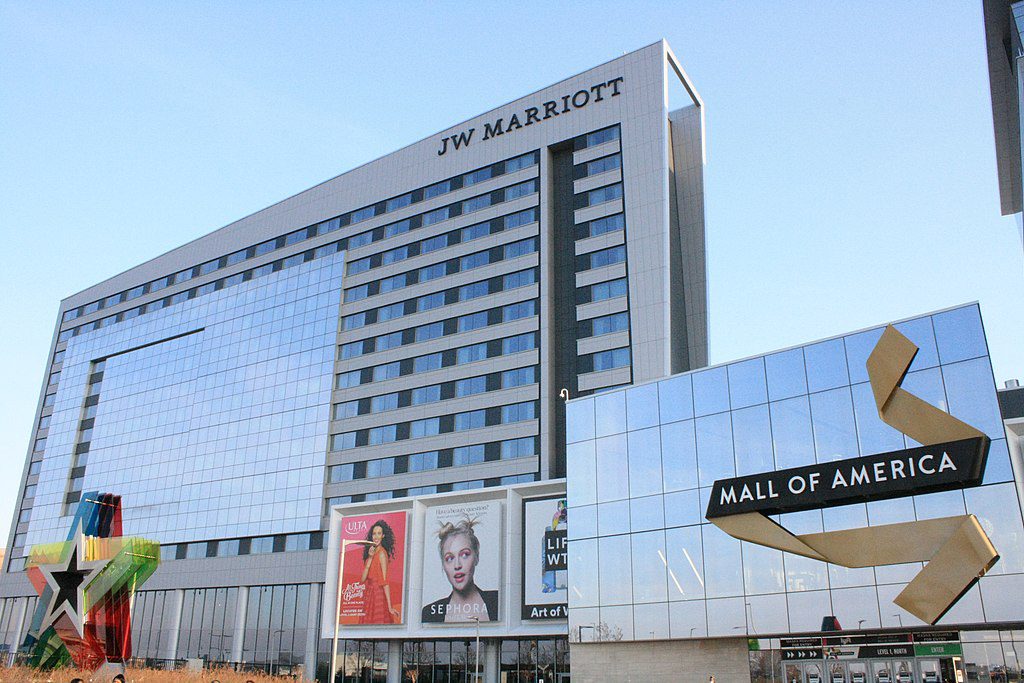Marriott Rides China and U.S. Travel Strength to $422 Million Profit

Skift Take
The travel recovery delivered a major financial win to the world’s largest hotel company.
Marriott International’s $422 million second quarter profit was the best showing by a major hotel company so far during the industry’s earnings cycle, vaulting over Paris-based Accor’s $67 million and Hilton’s $128 million profits reported last week. A fully recovered at-times China portfolio as well as strong leisure travel demand in the U.S. delivered Marriott its strong quarter.
There is a threat of looming setbacks amid outbreaks of the more contagious Delta variant of the coronavirus, but Marriott leaders generally expect the recovery momentum to continue through the end of the year.
“While we are keeping a close eye on variant strains, we're optimistic about the continued global recovery,” Leeny Oberg, Marriott’s chief financial officer, said Tuesday on a company investor call. “Our momentum has continued into July, and we expect an uptick in business travel this fall.”
The jump to profitability follows an $11 million first quarter loss and a $234 million loss in the second quarter of last year, the first full quarter of the pandemic.
Leisure, business, and group room bookings across Marriott’s Mainland China portfolio for the month of April all exceeded 2019 levels. China is the first major market for Marriott where revenue per available room — the hotel industry’s key performance metric — fully recovered to pre-pandemic levels.
Leisure bookings in the U.S. across the second quarter were 15 percent higher than the same time in 2019. While business and group bookings are still off pre-pandemic performance, Marriott leaders, like those at leading competitor Hilton as well as the airline industry, are bullish around the idea corporate travel will return — even if some analysts aren’t as convinced of a rapid rebound.
Marriott's corporate bookings in the U.S. for the first three-and-a-half weeks of July were down 45 percent from the same time in 2019. But a recovery is underway. These kinds of bookings rose 23 percent from May to June and then another 27 percent from June to that July time segment.
“We are optimistic about the return of business travel,” Marriott CEO Anthony Capuano said. “We talk to about 700 corporate travel managers every month, and we are hearing anecdotally from our customers — particularly those that are in customer service businesses [like] law firms, accounting firms, [and] consulting firms — that it is critical to their business [and] that they be on the road and in-person with their customers.”
A New Kind of Hotel Operation
Marriott may see a steady return to normal in markets like China and U.S., but work is underway regarding how the company’s roughly 7,800 hotels might have a different way of doing business going forward.
Brand standards around everything from food and beverage concepts to housekeeping were relaxed during the pandemic to allow owners to focus more on sheer financial survival. But Marriott leaders plan to return to these standards and making sure owners and franchisees are abiding by them by sometime next year.
Oberg and Capuano reiterated during the call that the reintroduction of brand standards will consider franchisee feedback and a focus on reducing costs. This could mean further emphasis on contactless features like mobile check-in and check-out, which reduces staffing needs at a front desk, and elimination of daily housekeeping at certain properties.
“You can expect us to continue to try to strike the right balance between the expectations of our guests as they get back on the road and the financial realities that our owners and franchisees face,” Capuano said. “Whether it’s housekeeping protocols, whether it’s food and beverage service, we’ll continue to evaluate service levels by market and quality tier around the world.”
Labor Pains
The hotel industry, particularly in the U.S., continues to face a labor shortage crisis amid rising occupancy rates. Marriott plans to combat this over the next few months with a marketing blitz aimed at promoting career opportunities within the company.
Some of that “social and targeted marketing” includes job fairs, especially in markets like Florida, Texas, and Arizona where the travel recovery has occurred the fastest in the U.S. Incentives like sign-on bonuses and base salary adjustments “in select markets” are also on the table, Capuano said.
This is a clear sign there is merit to the argument the hotel industry’s lack of worker plight isn’t entirely due to the extra $300 in weekly federal unemployment benefits running through early next month. Economists have pointed to the hotel industry’s lower wages than industries like retail as another factor keeping workers from returning to their old jobs after getting furloughed last year.
Hotel executives previously told Skift signing bonuses as high as $2,000 were common in recent months as a recruiting tool.
All Eyes on Fall
Marriott leaders may be bullish on where things stand in two of their largest markets, but there are still plenty of headwinds and uncertainty out there standing in the way of a full recovery.
The Delta variant is now the dominant strain of the virus around the world, and even China saw setbacks to its recovery in recent months. Chinese leaders this week issued travel restrictions and mass testing for the city of Wuhan, where the virus was first detected in 2019, due to a new outbreak.
The Asia Pacific region beyond China stalled in its recovery over the second quarter due to a new round of lockdowns in markets like Japan, Australia, and South Korea. This was all amid new cases stemming from the Delta variant.
Florida and other parts of the Sun Belt are feeling the most impact of the Delta variant in the U.S., largely due to lower vaccination rates across the region.
“We will continue to be vigilant as we watch the pace of vaccinations around the world, the effectiveness of those vaccinations relative to the Delta variant, and monitor the impacts of that on our business,” Capuano said.




